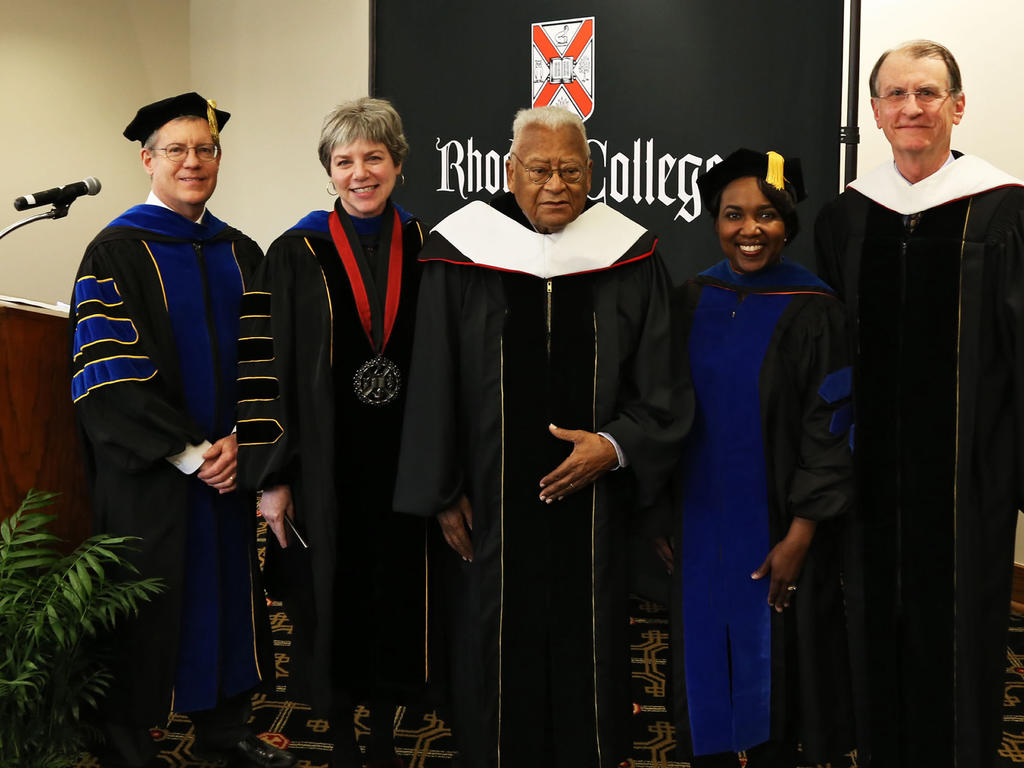Rhodes College on April 5 awarded longtime civil rights activist Rev. James Lawson an honorary Doctor of Humanities degree. While in Memphis for MLK50 events, Lawson spoke to a packed room in Rhodes’ Briggs Hall about the history and changes of the country as well as the continued need for social justice. The Rhodes Board of Trustees earlier this year voted to confer the degree, and a brief ceremony took place prior to Lawson’s talk.
“Today we honor Rev. James Morris Lawson Jr. for his lifetime of service as a dedicated activist and leader of the Civil Rights Movement,” said Rhodes College President Marjorie Hass, presenting him the degree. “As we reflect this week on the 50 years that have passed since Dr. Martin Luther King Jr.’s assassination, we find ourselves now filled with hope and determination as we face the next 50 years. Rev. Lawson embodies what we value here at Rhodes: lifelong compassion and personal integrity.”
Born in Pennsylvania in 1928, Lawson grew up in Ohio and earned a bachelor’s degree from Ohio’s Baldwin Wallace College. He spent time in India as a missionary after graduating and studied theology at Oberlin College before transferring to Vanderbilt University in Nashville, TN.
While in Nashville, Lawson began directing nonviolence training workshops, which were attended by area college students, including many future leaders such as politician John Lewis. Their training sessions were put to the test in 1959 and 1960 with the launching of the Nashville sit-ins, which were later credited with disrupting segregation laws and practices. Vanderbilt expelled Lawson for his civil rights activism, but he went on to earn a Bachelor of Sacred Theology degree from Boston University.
Lawson stayed committed to nonviolent protest to effect positive social change and was involved with the Freedom Riders, even joining the riders on a journey to Alabama, where they encountered violent racism and incarceration. In 1962, Lawson became pastor of Centenary Methodist Church in Memphis, and when workers began the Memphis Sanitation Strike in 1968 for higher wages and union recognition, Lawson served as chairman of the strike committee.
After moving to Los Angeles in 1974, Lawson served as pastor of the Holman United Methodist Church until his retirement in 1999. He has remained active in social movements and human rights issues including economic justice, LGBT equality, and immigration rights.
“In this cultural and political moment, where we see continued inequities and violence against the oppressed and marginalized, his example remains incredibly relevant,” said Hass. “His life of action inspires a call to each of us and reminds us to advocate for justice in our communities, to speak up for those who cannot speak for themselves, and to do, quite simply, what is right.”
